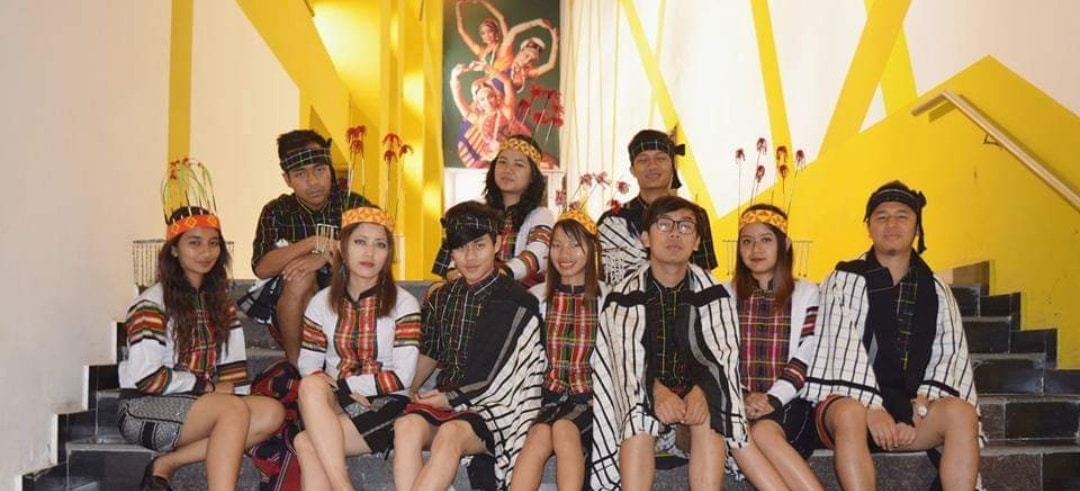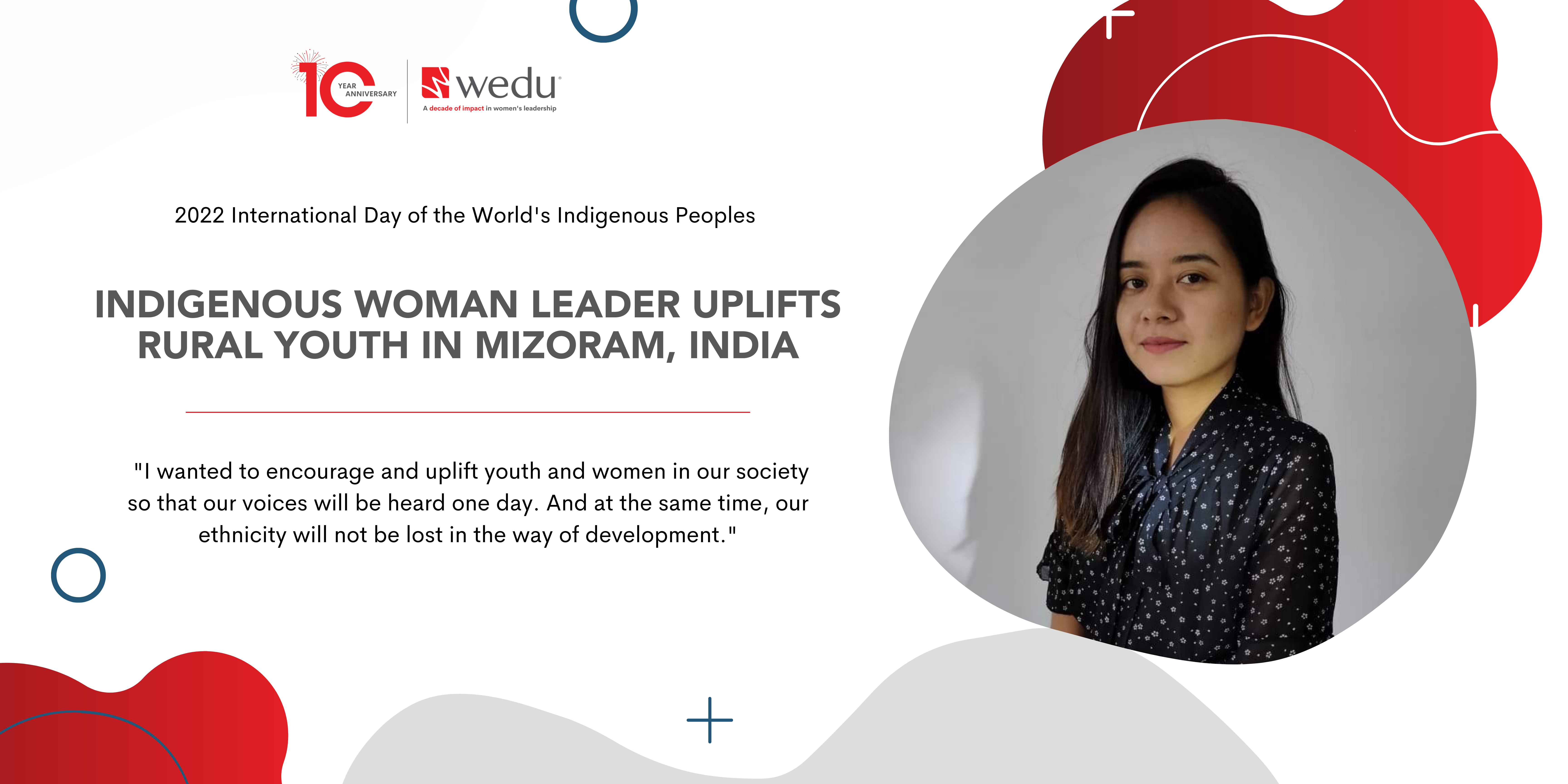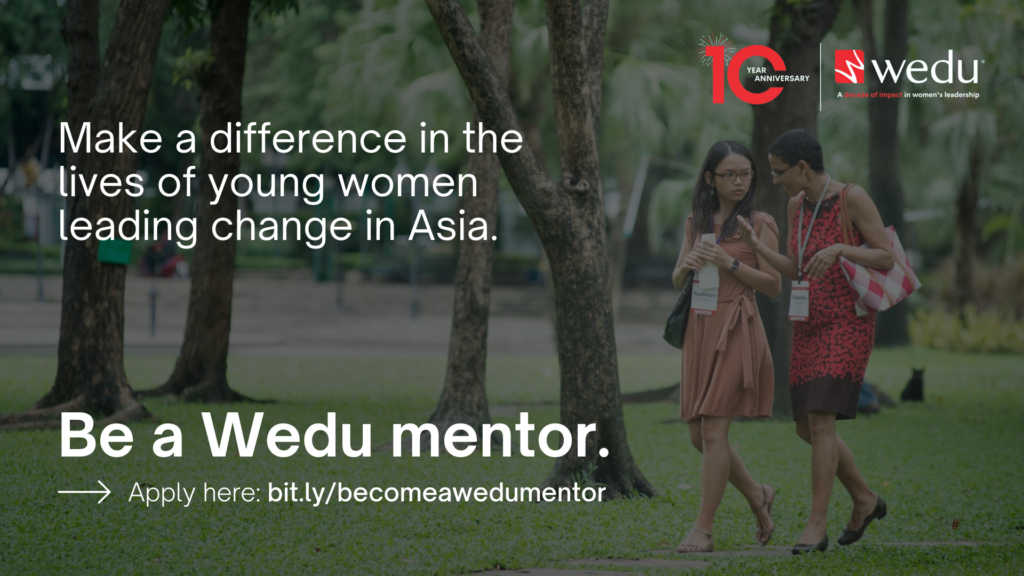
09 Aug Indigenous woman leader uplifts rural youth in Mizoram, India, to participate in sustainable agriculture
A feature article in celebration of the 2022 International Day of the World’s Indigenous Peoples
 At Wedu, we believe that impact is greater when we have leaders who rise from lived experiences and genuinely represent the interest of their communities. Our Rising Star Ambassador, HP Remtluangpuii, is proof of this as she works with her tribe, the indigenous people of Mizo from Mizoram state, India.
At Wedu, we believe that impact is greater when we have leaders who rise from lived experiences and genuinely represent the interest of their communities. Our Rising Star Ambassador, HP Remtluangpuii, is proof of this as she works with her tribe, the indigenous people of Mizo from Mizoram state, India.
The Mizo people (Mizo: Mizo hnam) are an ethnic group native to the Indian state of Mizoram and neighbouring regions of Northeast India. The term covers several related ethnic groups or clans inside the Mizo group.
About Project Chhimbal
HP currently works in agriculture and is focused on engaging with rural youth, encouraging them to work in the field as a sustainable way to uplift their social and economic status. She initiated one of her projects under the Asia Pacific Youth Exchange called Project Chhimbal, which supports local women in branding and marketing their local agricultural produce to elevate their living. HP shares, “Project Chhimbal also focuses on training youth to learn more about the Sustainable Development Goals and 21st-century skills without damaging the world we live in.”
“We also have a small support group for women. On this platform, women can share the problems we are currently facing, and we were able to listen and give advice on the solution for that problem to strengthen and support ourselves.”
Sharing more about her leadership in the project, HP mentions that working with youth in rural areas and the agricultural field has opened up employment opportunities, which helps in alleviating communities from poverty. She embraces her role as a change-seeker by teaching the importance of sustainable agricultural practices in a world and a time where climate change is one of the most urgent matters of all time.
 Why indigenous women’s leadership matters
Why indigenous women’s leadership matters
HP’s interest and passion for working with indigenous people came from not only a desire to end discrimination against their culture and beliefs but also to protect women’s voices, ensuring they are heard when decisions impacting their lives are being made. “All Mizo tribes and clans claim in their folk legends that Sinlung/Chhinlung was the cradle of the Mizos. So like any other tribe, we have our own traditions, cultures, lifestyles, beliefs, food, languages, rituals, and a different approach to life.”
“Most of the time, we face discrimination, and our voices go unheard. We have been dispossessed of our lands, territories and resources, and we often lost control over our way of life. I wanted to work with women and young people to prevent the violence and discrimination they were victims of. I wanted to encourage and uplift youth and women in our society so that our voices will be heard one day. And at the same time, our ethnicity will not be lost in the way of development.”
She also highlights the need for genuine representation in leadership as a key tool in addressing the key issues that Mizo people and other ethnic communities actually face. “Nowadays, we have identified many problems that we have faced. To raise concerns and solve these problems, a good leader is needed, so leadership development is a much needed skill. We need a leader who can speak for themselves and the people with the principles of equality, non-discrimination and prohibition of racial discrimination.”
How we can support indigenous communities?
HP notes that this day, the International Day of the World’s Indigenous Peoples, is an opportunity for people to raise awareness and design policies and solutions rooted in community needs. “We need to uplift Indigenous people. Our stories and culture play a critical role in the ongoing visibility of indigenous communities. If we can learn about each other, development and help can also come based on our needs and necessities.”
This day is critical in surviving and recognising indigenous people’s culture, heritage and way of life. HP encourages others to take time to learn about these cultures and acknowledge them. “People should not care only about economic development. They should also care about the social development of indigenous people. That way, we can learn and grow together.”
At Wedu, we celebrate and nurture the unique and transformative leadership journeys of Rising Stars like HP. Through mentorship, you too can support changemakers from Asia. Apply today at https://www.weduglobal.org/mentor/ and join our upcoming mentorship cycle in October!



Sorry, the comment form is closed at this time.